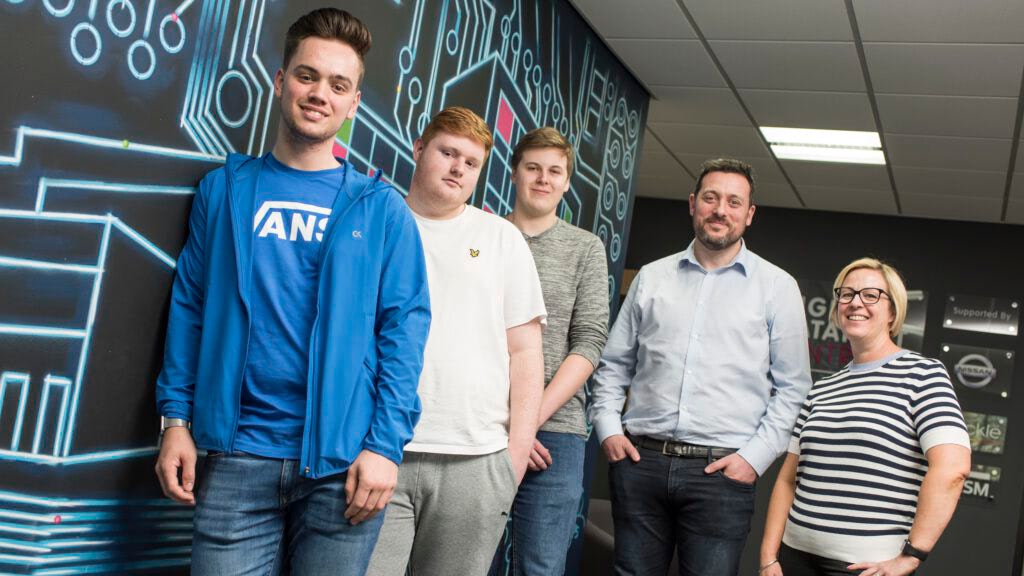Digital scheme aims to produce tech #talent

A ground-breaking scheme to attract new talent into the digital technology sector has been launched in the North East.
Gateshead College has teamed up with Sunderland Software City, PROTO: The Emerging Technology Centre and North East digital firms to kick-start the programme, which is designed to help the industry tackle skills shortages and become more competitive.
The flexible programme offers a radical new approach to training and developing tech talent.
Students from the college spend at least 45 days working with several companies on live projects, acquiring the skills they need to build a successful career – a shift away from traditional work placements, which are often much shorter and are spent in one company.
Students get the opportunity to develop a broader range of skills that they can apply on different live projects, while companies that traditionally struggle to offer placements due to lack of resource can trial and assess potential new talent with the support of Sunderland Software City, PROTO and Gateshead College.
Under the programme, students on placement are employed by Sunderland Software City – taking employment responsibilities away from the tech firms. They benefit from experienced mentors from the college, Sunderland Software City and Gateshead-based PROTO, a cutting-edge research and development facility for emerging technology and digital innovation.
The scheme has been driven by the needs of local digital firms, which claim there’s a shortage of skilled developers and other tech talent coming through the ranks. It is also a vehicle for the delivery of the new digital T-levels – due to come on stream in September 2020 – which will require students to complete extended work placements as part of the qualification.
Jill McKinney, head of skills and training at Sunderland Software City, said:
“We know many digital firms face resource challenges that prevent them from offering work experience placements, particularly smaller companies which might not even have a spare desk or PC for the student to use.
“With this programme, businesses don’t have to worry about taking on students as temporary employees or providing extra equipment or facilities – we do all of that for them. We already have four companies involved and our aim is to eventually increase that number to 100.”
Five students are currently involved in the programme. They are all studying for a BTEC extended diploma in software development at Gateshead College, which is currently trialling the extended work placements with digital firms ahead of the T-levels roll-out next year.
Tracy Foreman, assistant principal at Gateshead College, said:
“It’s been brilliant to work with Sunderland Software City, PROTO and digital firms that really get what we’re trying to do, which is to help industry find new and innovative ways of tackling skills shortages.
“The beauty of this programme is its flexibility; people can learn computer coding or app development skills that can be applied across several companies and projects. By doing this we’re breaking the mould, delivering something which hasn’t been done before in this sector.
“As part of the new T-level qualifications, there’s a much greater emphasis on digital businesses to support more young people through extended work placements which, in the long run, will help companies get the skills they currently lack.”
Firms that have signed up for the initiative include gaming firm Tombola, app developer Hedgehog Lab, software specialist Geek Talent and digital development agency Enigma Interactive. Gateshead College students have been working with Geek Talent to develop an app that will provide details of T-level courses around the country – a useful resource for students and organisations that will deliver the training.
Dominic Murphy, managing director at Geek Talent, said:
“It’s been great to benefit from the expertise of five talented students who’ve all brought something different to the party. As an app development specialist, we want to stay at the forefront of technological advances and finding people who can learn about these technologies and apply them on live projects is crucial. It’s been a real challenge for us previously so the programme will help us address this.”











Responses